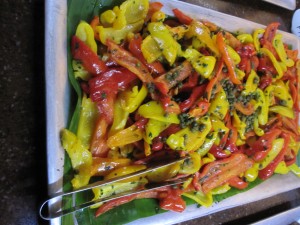The benefits of folic acid
‘I’ve heard about folic acid – but what exactly is it?” Folic acid, also known as folacin or folate is a B-complex vitamin which helps the body produce healthy new cells, support red blood cell production, prevent anemia and keep the heart healthy.
Folic acid is water-soluble. What does this mean? Water-soluble vitamins dissolve in water. Leftover amounts of the vitamin leave the body through the urine. That means your body does not store folic acid and you need a continuous supply of the vitamin in the foods you eat.
Everybody needs folic acid yet it’s especially important for women of child-bearing age. Obtaining enough folic acid before and during pregnancy can prevent major birth defects for the baby. These defects involve malformation of a structure in the fetus called the neural tube. As the baby develops, the top part of this tube helps form the baby’s brain, and the bottom part unfolds to become the baby’s spinal column.
Pregnant women need 400 to 800 mcg of folic acid in the early stages of pregnancy, even before they know they are pregnant. Women should discuss their folic acid needs with their doctors. Some doctors prescribe prenatal vitamins that contain higher amounts of folic acid.
January 2012 is National Birth Defects Prevention Month! The theme is “And the Beat Goes On… Looking to the Future for Healthy Hearts” which focuses on congenital heart defects, the most common type of birth defect.
What foods contain folic acid?
Good sources of folic acid are found in leafy vegetables (romaine, spinach, lettuce, turnip greens, mustard greens), citrus fruits (orange juice), asparagus, parsley, broccoli, cauliflower, beets, beans and whole grains. If you’re thinking of making a spicy stir fry for dinner, add some chopped cabbage, thinly cut bell peppers, leeks and green peas for some more flavor and folic acid vitamin!
It is also added to foods that are labeled “enriched” such as in breakfast cereals, breads, flours, pastas and white rice. Pregnant women are usually given a dietary supplement to cover their folic acid needs.
The federal government’s 2010 Dietary Guidelines for Americans notes that “nutrients should come primarily from foods. Foods in nutrient-dense, mostly intact forms contain not only the essential vitamins and minerals that are often contained in nutrient supplements, but also dietary fiber and other naturally occurring substances that may have positive health effects.”
How can I add folate rich foods to my meals?
 For breakfast, think OJ – orange juice and a bowl of whole grain cereal. Be sure to add some veggies to your lunch sandwich – how about some greens or even grilled bell peppers and beets between your sliced turkey? A rich folic dinner could include a hearty leek, potato and parley soup with a bean salad. Have a good night’s sleep knowing that your body will reap the benefits of a healthy and hearty meal!
For breakfast, think OJ – orange juice and a bowl of whole grain cereal. Be sure to add some veggies to your lunch sandwich – how about some greens or even grilled bell peppers and beets between your sliced turkey? A rich folic dinner could include a hearty leek, potato and parley soup with a bean salad. Have a good night’s sleep knowing that your body will reap the benefits of a healthy and hearty meal!
